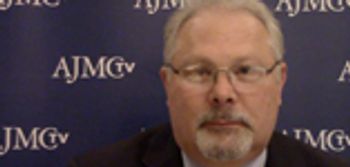
The mains why Americans are less satisfied with their health system compared with people in other countries is their concern and uncertainty about being able to access “most preferred care.”
What we're reading, March 29, 2016: the Obama administration is expected to announce new measures to combat opioid addiction; cholesterol test results from Theranos could throw off doctors' decisions; and Republicans aren't talking as much about Obamacare on the campaign trail.

The mains why Americans are less satisfied with their health system compared with people in other countries is their concern and uncertainty about being able to access “most preferred care.”

Sync for Science-a collaboration between the National Institutes of Health, Office of the National Coordinator for Health IT, and Harvard Medical School-will allow patients to access their own health data, which they can then share with researchers involved in the initiative.

In a survey conducted by a sales and marketing firm, oncologists, oncology nurses, and oncology administrators have expressed displeasure with the customer experience rendered by oncology manufacturers.

Overall, the healthcare industry in the United States is getting better at acknowledging social determinants involved with health, but housing for Medicaid patients remains an issue, explained J. Mario Molina, MD, president and CEO of Molina Healthcare.

What we're reading, March 25, 2016: Congress went on its spring recess without voting on Zika emergency funding; HealthCare.gov has more than 300 cybersecurity incidents; and Indiana's Medicaid expansion model has caught the attention of other conservative states.

Experts say it all the time: healthcare is local. That makes it really important to involve employers and local communities that know best the challenges consumers face, said Karen van Caulil, PhD, president and CEO of the Florida Health Care Coalition.

A retrospective research study has identified disparity in the use of the test, primarily driven by race, insurance status, and the type of facility where treatment was administered.

What we're reading, March 24, 2016: Valeant doubles the price of aid-in-dying drug; the Supreme Court seems split on contraception case; and less than 3% of Americans meet qualifications for a healthy lifestyle.

Bruce Gilbert, executive director of the Silver State Health Insurance Exchange in Nevada explains how the exchange has targeted a more specific audience for enrollment and how the state has benefited from having a state exchange.

Smartphone personal voice assistants, such as Siri and Cortana, often fail to provide appropriate information when asked questions about mental health, rape, and domestic violence.

A new study in JAMA Internal medicine has found that the concurrent use of interacting medications has increased since 2005 and that 15% of older adults are potentially at risk for a major drug-drug interaction.

What we're reading, March 22, 2016: the reduction of the uninsured rate was driven mostly by the Affordable Care Act, not economic recovery; heart disease rates dropped; and participation in meaningful use program declines.

Analysis of data on nearly 27,000 patients with rectal cancer found distance from site of radiation therapy, along with a few other factors, could significantly impact the possibility of the patient receiving treatment.

What we're reading, March 21, 2016: government action to lower drug prices unlikely; women live longer than men but face more years of disability; and the movement to give nurses more autonomy.

Having a state exchange has allowed even those in the most remote locations of New Mexico to gain assistance with their insurance, said Amy Dowd, CEO of beWellnm.

In states that have not expanded Medicaid, uninsured low-income women face more difficulties in accessing recommended screenings for breast and cervical cancer.

This week, the top managed care stories include Humana announcing executive bonuses are now partially tied to value, Veterans Affairs has expanded access of hepatitis C drugs to all veterans in the system, and CDC releases guidelines on prescribing opioids.

Panelists highlighted the flexibility allowed in a state-based marketplace, the benefits of setting one up, and paint a rosy future at America's Health Insurance Plans' Health Insurance Exchange Forum.

The partnership between is expected to improve access and help overcome gaps in care for consumers.

What we're reading, March 18, 2016: Covered California is considered removing hospitals with poor performance from the exchange; an outbreak in Wisconsin spreads to Michigan; #ZikaVirus infection in the US climbs to 450.

Health plans that manage complex populations covered by Medicaid often have to get creative in order to provide care for their consumers, explained panelists at America’s Health Insurance Plans’ National Health Policy Conference.

Dermatologists have conducted a research study that proves "smartphone microscopes" can improve the detection of skin cancer in remote areas and in developing nations, where specialists are not as easily accessible to patients.

Rather than decreasing healthcare spending, retail health clinics actually modestly increase spending by $14 per person per year.

Individuals facing end of life-whether that be for themselves, or a family member-encounter an array of challenges when attempting to decide among the end-of-life care options that are available. Health care professionals sometimes struggle with providing guidance, as well.

A new report published by the American Society of Clinical Oncology has drawn a mixed picture of oncology care in the United States-reduced mortality, increased survivors, and progress in treatment coupled with unsustainable costs and an unstable clinical setting.

259 Prospect Plains Rd, Bldg H
Cranbury, NJ 08512
© 2025 MJH Life Sciences®
All rights reserved.
